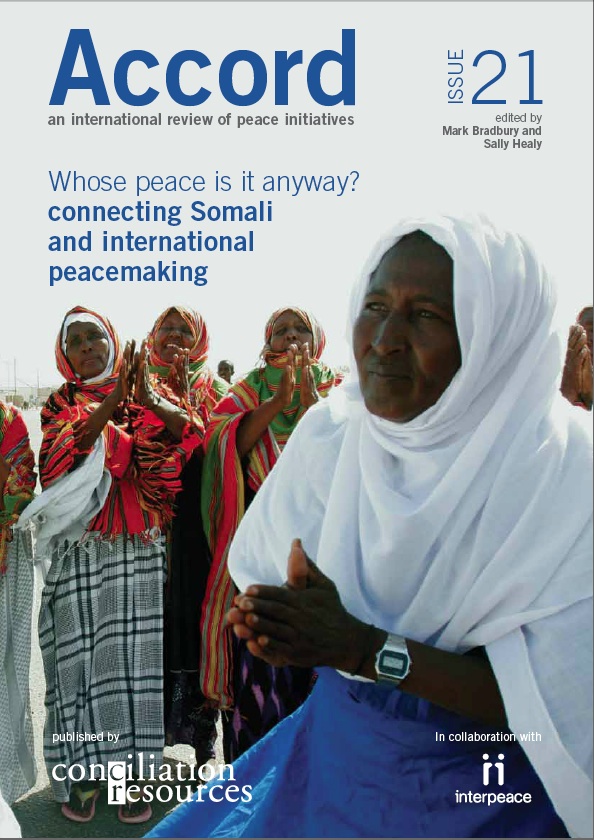The war against Siyad Barre’s regime in the 1980s was seen as a just cause by many Somalis and many women participated in the struggle to end the dictatorship. Those who earned respect from their participation later used this to demand concessions from warlords and militias. Several became leading members of civil society and the women’s movement and became engaged in peacebuilding.
But with the collapse of the state, women also lost the legal status and equal rights that had been afforded them. While women have actively engaged in peacebuilding, the gendered nature of clan-based politics means that women are typically excluded from full participation in peace talks.
It is commonly said in Somalia that while women can build peace only men can make it. One reason for this is that a woman’s affiliations with her father’s clan, and her mother’s, husband’s, children’s and son-in-law’s clans, mean that a woman’s clan loyalty is perceived as unpredictable. They therefore are not included as clan delegates in negotiations and decision-making forums that can affect the fortunes of the clan.
By the same token a woman’s multiple clan affiliations can give her a structural role as a peacebuilder, enabling her to act as a conduit for dialogue between warring parties and to exert pressure on them to keep talking.
When mobilised, women play an important influencing role in local peace processes, especially if they have wealth, are related to clan elders or come from a respected family. In Puntland, in response to one conflict, elderly women from several clans approached the leaders and demanded a cessation of hostilities. Their message was simple: ‘we have had enough displacement in our lifetime and at this age we can’t tolerate it anymore’. This mobilised clan elders and leaders to intervene and ensure the conflict was peacefully resolved.
Peacebuilding conferences in Somaliland, in Borama and Sanaag (1993) and Hargeisa (1996), would not have taken place without the collective lobbying of women pressurising the elders to intervene to end the conflicts. But despite their efforts, and confirmation from religious leaders that Islam offered no grounds to exclude them, women did not participate in the talks themselves, other than as fundraisers and cooks. After exerting pressure on their clansmen, ten women were allowed to observe the peace talks in Boroma in 1993 and eleven were allowed to observe the 1996 Hargeisa Conference, but had no voting rights.
One of the powerful lobbying strategies women have used under such constraints is poetry. In the 1998 Garowe conference in Puntland, Anab Xasan, frustrated by what she called ‘male power-grabbing and selfishness’, recited a poem that left many men in tears. Reportedly, after hearing the poem the elders agreed to allocate women seats in the administration.
Oh men, why don’t you realise the difficult circumstances that
We are now facing?
Or keep the land and we will emigrate.
When the rhythm for rebuilding slows down, we rally and mobilise
For the purpose. We are always beside men, never behind them.
We are at the forefront of peace and reconciliation,
We are ready with what it takes to resurrect good government.
But you men ignore our advice and inspirations,
You suffocate our intellect, so it never sees daylight…
Be warned, we are now awakening after a deep sleep and passivity.
(Excerpt translated by Faiza A. Warsame)
For the most part, male delegates dictate the shape and form of negotiations. Women remain in the conference venue as observers and as pressure groups ensuring that any challenges that would cause a break-up are promptly dealt with.
Puntland and Somalia allocated quotas for women parliamentarians of eight per cent and twelve per cent respectively. Somaliland has no quota system and in the 2005 parliamentary elections only two out of the 82 seats were taken by women candidates, and only one of these two was elected.

